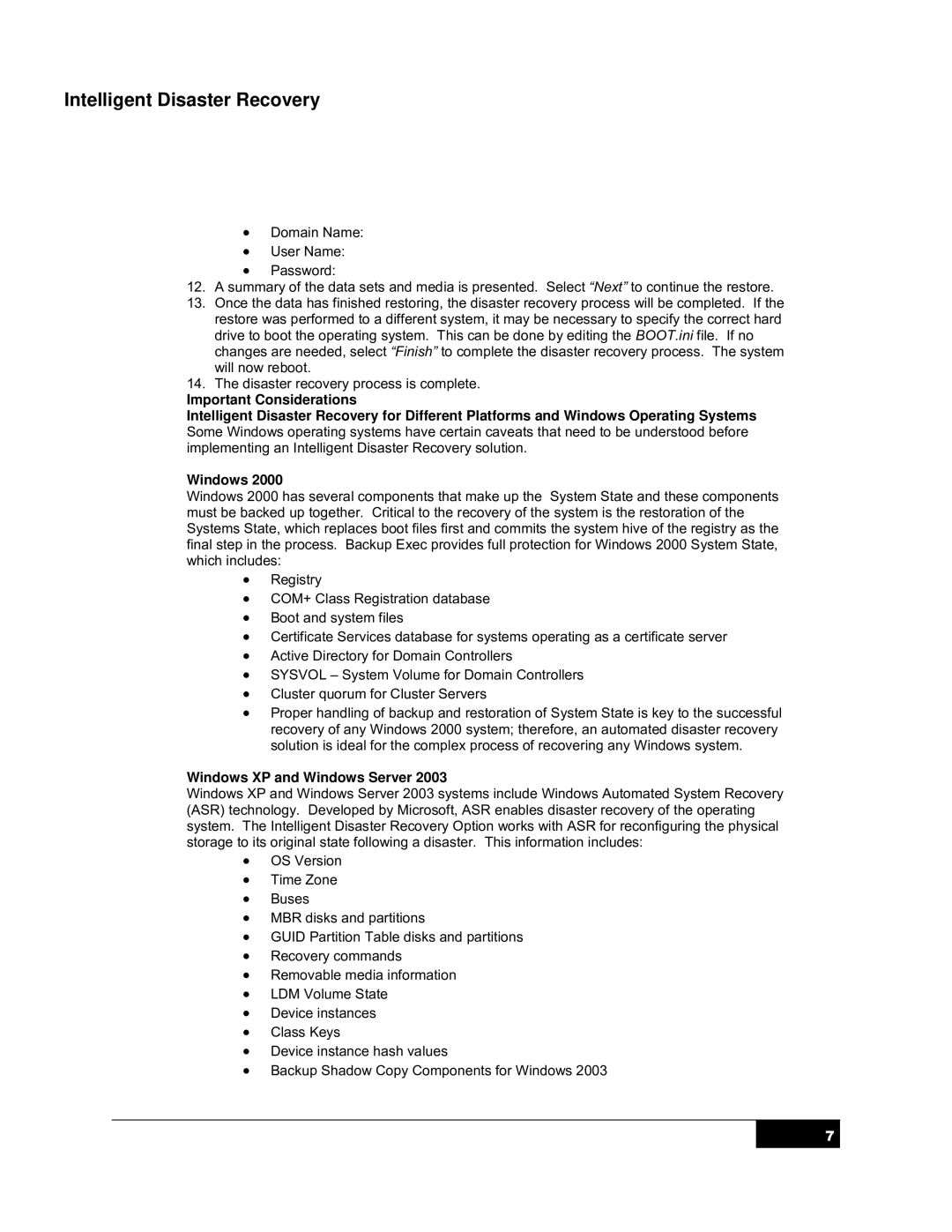Intelligent Disaster Recovery
•Domain Name:
•User Name:
•Password:
12.A summary of the data sets and media is presented. Select “Next” to continue the restore.
13.Once the data has finished restoring, the disaster recovery process will be completed. If the restore was performed to a different system, it may be necessary to specify the correct hard drive to boot the operating system. This can be done by editing the BOOT.ini file. If no changes are needed, select “Finish” to complete the disaster recovery process. The system will now reboot.
14.The disaster recovery process is complete.
Important Considerations
Intelligent Disaster Recovery for Different Platforms and Windows Operating Systems Some Windows operating systems have certain caveats that need to be understood before implementing an Intelligent Disaster Recovery solution.
Windows 2000
Windows 2000 has several components that make up the System State and these components must be backed up together. Critical to the recovery of the system is the restoration of the Systems State, which replaces boot files first and commits the system hive of the registry as the final step in the process. Backup Exec provides full protection for Windows 2000 System State, which includes:
•Registry
•COM+ Class Registration database
•Boot and system files
•Certificate Services database for systems operating as a certificate server
•Active Directory for Domain Controllers
•SYSVOL – System Volume for Domain Controllers
•Cluster quorum for Cluster Servers
•Proper handling of backup and restoration of System State is key to the successful recovery of any Windows 2000 system; therefore, an automated disaster recovery solution is ideal for the complex process of recovering any Windows system.
Windows XP and Windows Server 2003
Windows XP and Windows Server 2003 systems include Windows Automated System Recovery (ASR) technology. Developed by Microsoft, ASR enables disaster recovery of the operating system. The Intelligent Disaster Recovery Option works with ASR for reconfiguring the physical storage to its original state following a disaster. This information includes:
•OS Version
•Time Zone
•Buses
•MBR disks and partitions
•GUID Partition Table disks and partitions
•Recovery commands
•Removable media information
•LDM Volume State
•Device instances
•Class Keys
•Device instance hash values
•Backup Shadow Copy Components for Windows 2003
7
